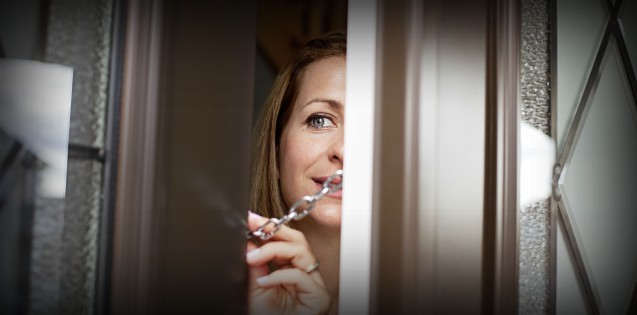Last week two Mormon missionaries came to my door. They were bright and friendly. They were polite and articulate. They were bold and confident. And they had a plan.
I, however, was caught off guard. My 5-year-old had opened the door to them without telling me, and when I came downstairs to the sound of the doorbell, the two young ladies were standing right outside. There was no hiding around the corner until they left, as I had planned.
So we talked. They asked questions about my children. We talked about the 102-degree heat they were trekking around in (wearing long, heavy skirts!). Then we got to the point of their visit — to convert me to Mormonism. First, I told them that my husband was a pastor at the Bible church across the street. When that didn’t seem to dissuade them, I told them that I was familiar with Mormonism but I didn’t believe in it.
Up to the Challenge?
They then wanted to know what I knew and why I didn’t believe. At that point, I got a bit flustered and blurted something about not believing that Joseph Smith had a revelation from God and my belief in the original biblical canon, which should not be added to. I was frazzled, trying to keep my children from escaping out the front door while defending my beliefs. At the same time, I was frustrated with myself for wasting an opportunity to tell these women about Jesus.
Recently, Tim Challies wrote about this exact thing:
There are many strategies for engaging with Jehovah’s Witnesses and Mormons and members of other cults. Many of these strategies are wise and helpful. But you have to be careful with them — you can win the argument even while you lose the opportunity. You can win the argument about the authority of the Bible but still lose the opportunity to share the gospel. Ultimately, we don’t want to persuade them of their faulty theology, but to have the Spirit persuade them of their faulty gospel. This will happen only when we tell them the true gospel, the saving gospel, the gospel of grace. We can have utter confidence in this strategy because the gospel is the power of God for salvation.
I wish before those young ladies showed up at my door I had thought through how I would interact with them, how I would confidently and lovingly share the gospel and invite them to continue to seek God’s truth through the Bible. I wish I hadn’t felt less prepared than they were.
Honestly, I was impressed with them. They asked me to pray about the Book of Mormon (I declined), and they boldly offered to come back and talk with me and Kevin, even after I had made it clear that he was a pastor and our faith was in the death and resurrection of Jesus Christ.
Toward the end of our conversation, my daughter Sadie asked, “Why did you come here?” One of the girls smiled and said, “We came here to tell you about Jesus.”
I wish I had been better prepared to share Jesus with them. The real Jesus. The One who loves them and can set them free from their striving for righteousness. I want to be “prepared to make a defense” to anyone who asks me about my faith in Christ — especially those who come to my door.
[For more about talking with Mormons, or coming out of Mormonism, check out our popular post, “5 Questions With a Former Mormon.”]












